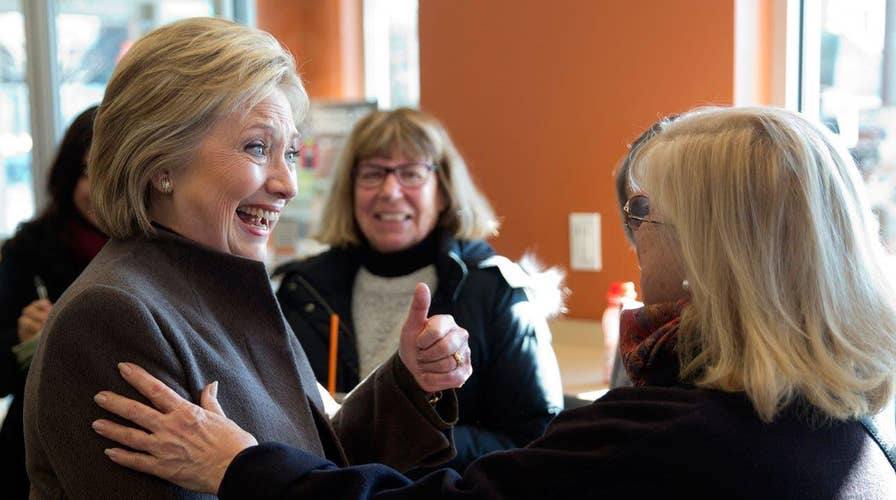Clinton camp plays expectations game in New Hampshire
Allies are hoping for a stronger than expected second place finish; Ed Henry provides insight on 'Special Report'
The Hillary Clinton campaign tried Tuesday to cast the candidate’s New Hampshire Democratic primary loss to Sen. Bernie Sanders in the best light, saying the outcome was “long expected” and that the possibilities for future victories remain “very good."
“We’ve built first-rate organizations in each state, and we feel very good about our prospects for success,” Clinton campaign manager Robby Mook said in an open letter.
Clinton -- a former first lady, secretary of state and New York senator -- has been the Democratic party’s front-runner since the start of the race.
But she narrowly defeated Sanders and his insurgent campaign last week in the Iowa caucuses, then lost to the Vermont senator in New Hampshire 59-to-38 percent with 34 percent of precincts reporting.
Mooks promised the campaign will compete “aggressively” in the upcoming primaries -- Nevada, South Carolina and then several more next month in the South.
Clinton’s campaign has been slowed by revelations about her use of a private server and email accounts for official correspondence while at the State Department, which has prompted an FBI probe.
Sanders, whose campaign is funded in large part by small-dollar contributions, has presented himself as an alternative to an establishment candidate. And he has more recently highlighted Clinton’s Wall Street connections.
Mooks, in the letter, argued the campaign is still well positioned to win the party nomination and tried to explain why it has invested so much beyond the first four primaries.
He stressed the need to win delegates and to compete in states whose electorates have more reliable Democratic voters, including blacks and Hispanics.
“The first four states represent just four percent of the delegates needed to secure the nomination,” he wrote. “The 28 states that vote (or caucus) in March will award 56 percent of the delegates needed to win. … The March states better reflect the true diversity of the Democratic Party and the nation -- including large populations of voters who live in big cities and small towns, and voters with a much broader range of races and religions.”











































